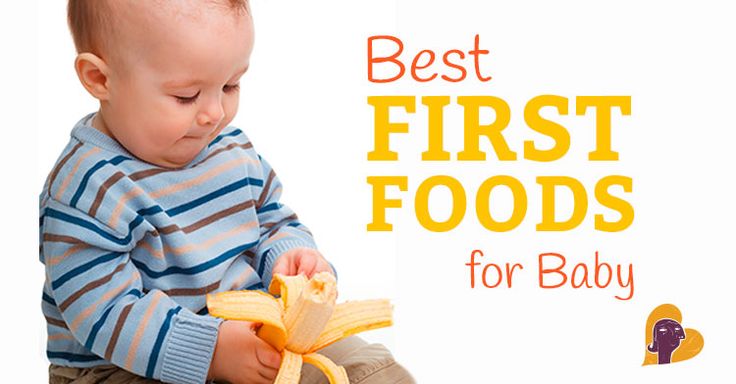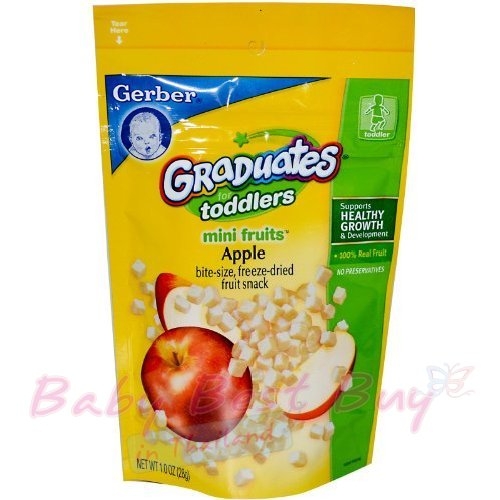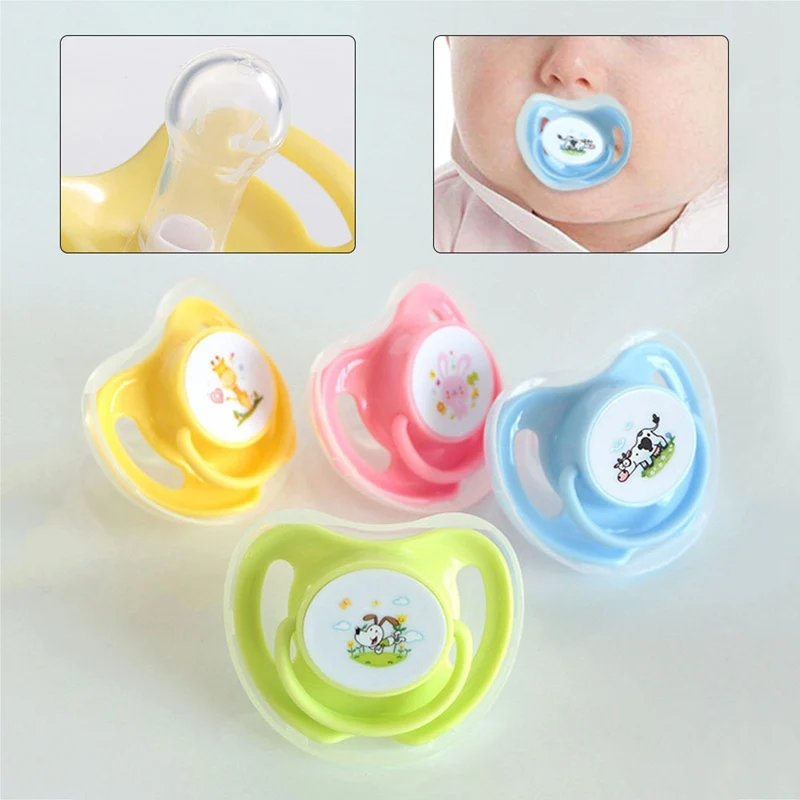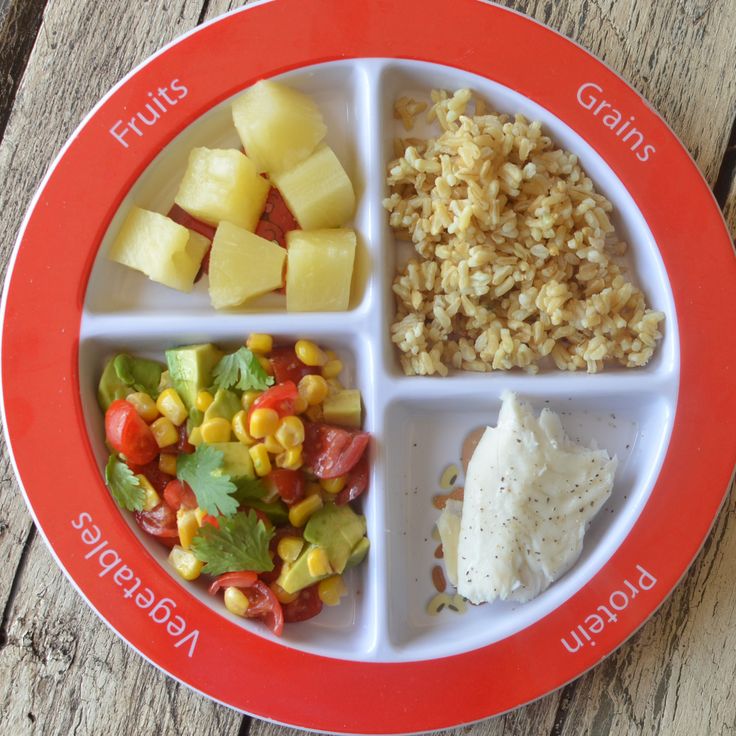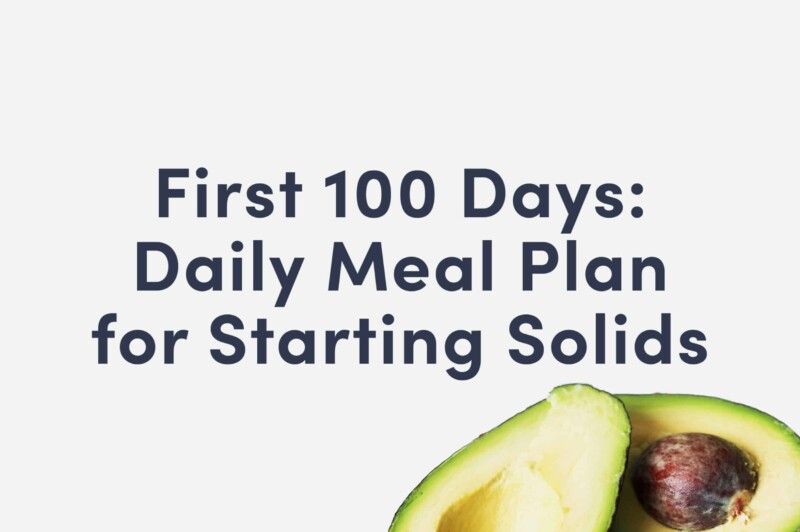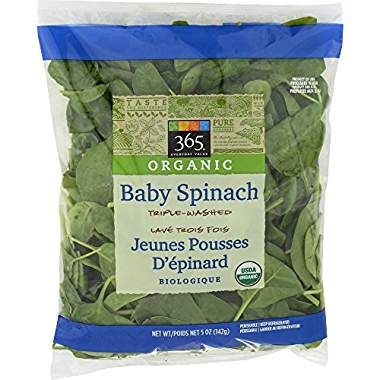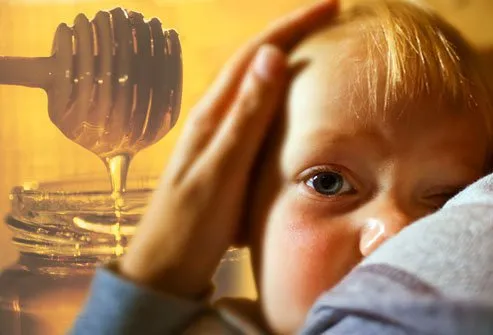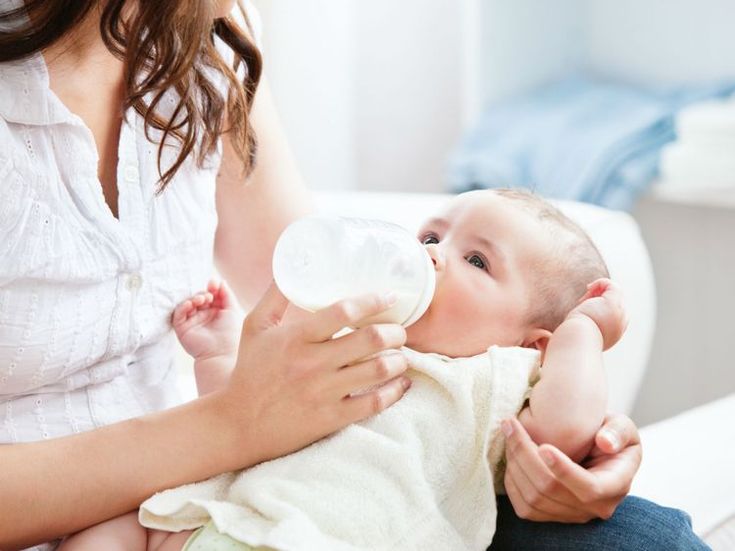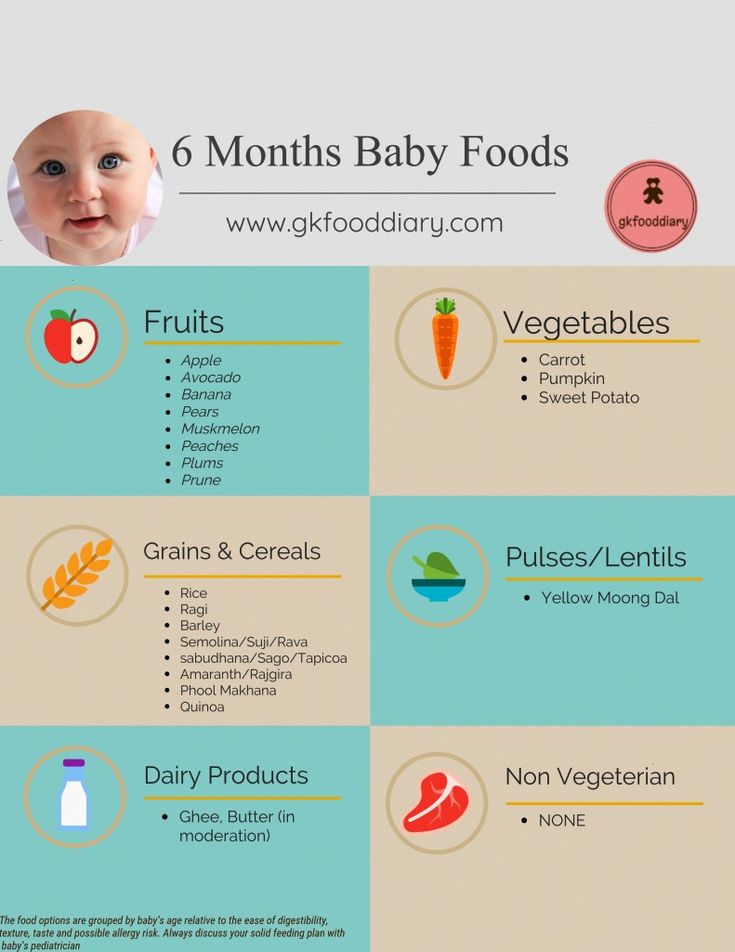Food to avoid for babies first year
Foods to avoid giving babies and young children
Salt
Babies should not eat much salt, as it's not good for their kidneys.
Do not add salt to your baby's food or cooking water, and do not use stock cubes or gravy, as they're often high in salt.
Remember this when you're cooking for the family if you plan to give the same food to your baby.
Avoid salty foods like:
- bacon
- sausages
- chips with added salt
- crackers
- crisps
- ready meals
- takeaways
Sugar
Your baby does not need sugar.
By avoiding sugary snacks and drinks (including fruit juice and other fruit drinks), you'll help prevent tooth decay.
Saturated fat
Do not give your child too many foods that are high in saturated fat, such as crisps, biscuits and cakes.
Checking the nutrition labels can help you choose foods that are lower in saturated fat.
See more on food labels.
Honey
Occasionally, honey contains bacteria that can produce toxins in a baby's intestines, leading to infant botulism, which is a very serious illness.
Do not give your child honey until they're over 1 year old. Honey is a sugar, so avoiding it will also help prevent tooth decay.
Whole nuts and peanuts
Whole nuts and peanuts should not be given to children under 5 years old, as they can choke on them.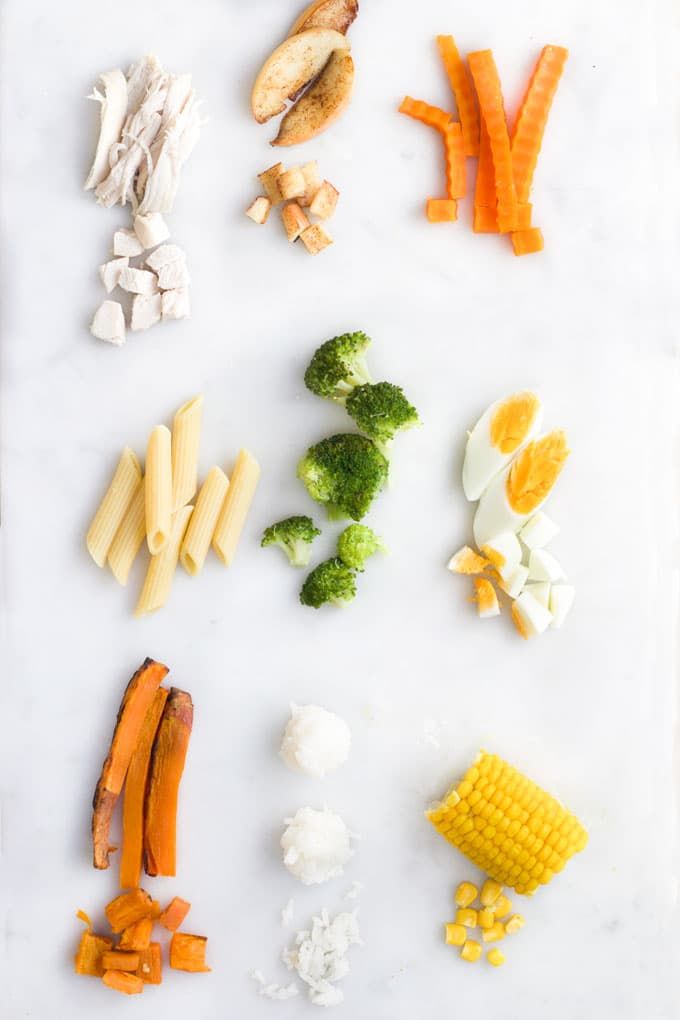
You can give your baby nuts and peanuts from around 6 months old, as long as they're crushed, ground or a smooth nut or peanut butter.
If there's a history of food allergies or other allergies in your family, talk to your GP or health visitor before introducing nuts and peanuts.
See more on food allergies in babies and young children.
Some cheeses
Cheese can form part of a healthy, balanced diet for babies and young children, and provides calcium, protein and vitamins.
Babies can eat pasteurised full-fat cheese from 6 months old. This includes hard cheeses, such as mild cheddar cheese, cottage cheese and cream cheese.
Babies and young children should not eat mould-ripened soft cheeses, such as brie or camembert, or ripened goats' milk cheese and soft blue-veined cheese, such as roquefort. There's a higher risk that these cheeses might carry a bacteria called listeria.
There's a higher risk that these cheeses might carry a bacteria called listeria.
Many cheeses are made from unpasteurised milk. It's better to avoid these because of the risk of listeria.
You can check labels on cheeses to make sure they're made from pasteurised milk.
But these cheeses can be used as part of a cooked recipe as listeria is killed by cooking. Baked brie, for example, is a safer option.
Raw and lightly cooked eggs
Babies can have eggs from around 6 months.
If the eggs are hens' eggs and they have a red lion stamped on them, or you see a red lion with the words "British Lion Quality" on the box, it's fine for your baby to have them raw (for example, in homemade mayonnaise) or lightly cooked.
Hens' eggs that do not have the red lion mark should be cooked until both the white and yolk are solid.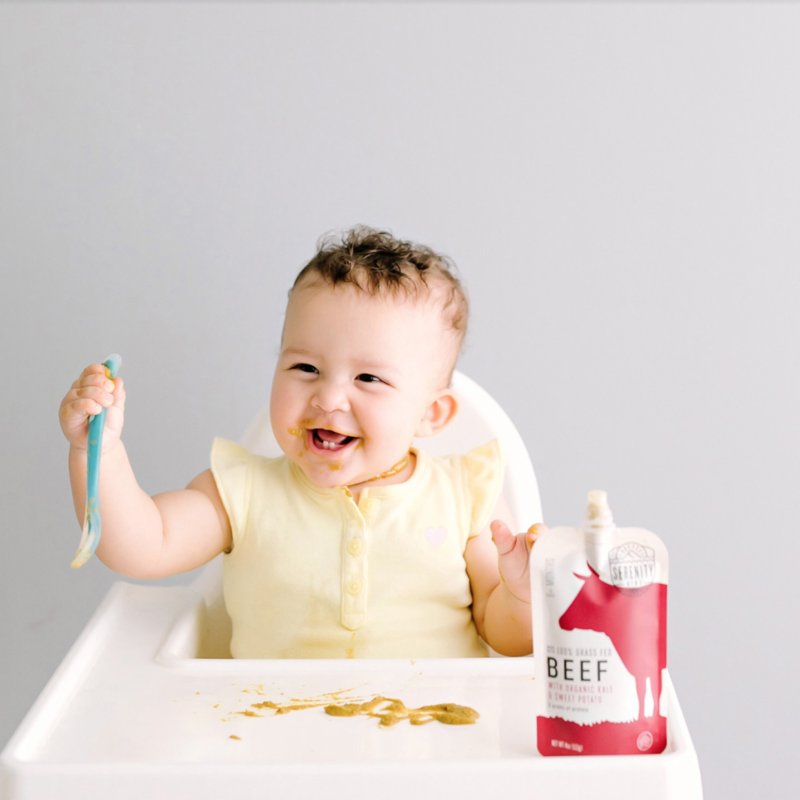 So should duck, goose or quail eggs.
So should duck, goose or quail eggs.
Avoid raw eggs, including uncooked cake mixture, homemade ice creams, homemade mayonnaise, or desserts that contain uncooked egg that you cannot confirm are red lion stamped.
Rice drinks
Children under 5 years old should not have rice drinks as a substitute for breast milk or infant formula (or cows' milk after 1 year old) as they may contain too much arsenic.
Arsenic is found naturally in the environment and can find its way into our food and water.
Rice tends to take up more arsenic than other grains, but this does not mean that you or your baby cannot eat rice.
In the UK, there are maximum levels of inorganic arsenic allowed in rice and rice products, and even stricter levels are set for foods intended for young children.
Do not worry if your child has already had rice drinks. There's no immediate risk to them, but it's best to switch to a different kind of milk.
There's no immediate risk to them, but it's best to switch to a different kind of milk.
Raw jelly cubes
Raw jelly cubes can be a choking hazard for babies and young children.
If you're making jelly from raw jelly cubes, make sure you always follow the manufacturers' instructions.
Raw shellfish
Raw or lightly cooked shellfish, such as mussels, clams and oysters, can increase the risk of food poisoning, so it's best not to give it to babies.
Shark, swordfish and marlin
Do not give your baby shark, swordfish or marlin. The amount of mercury in these fish can affect the development of a baby's nervous system.
Further information
For more information and advice about babies and food, see:
- food allergies in babies and young children
- your baby's first solid foods
- baby and toddler meal ideas
Foods to Never Feed Your Baby (3 Months of Age to 1 Year)
According to the CDC, you can start introducing solid foods to your baby at around 6 months old.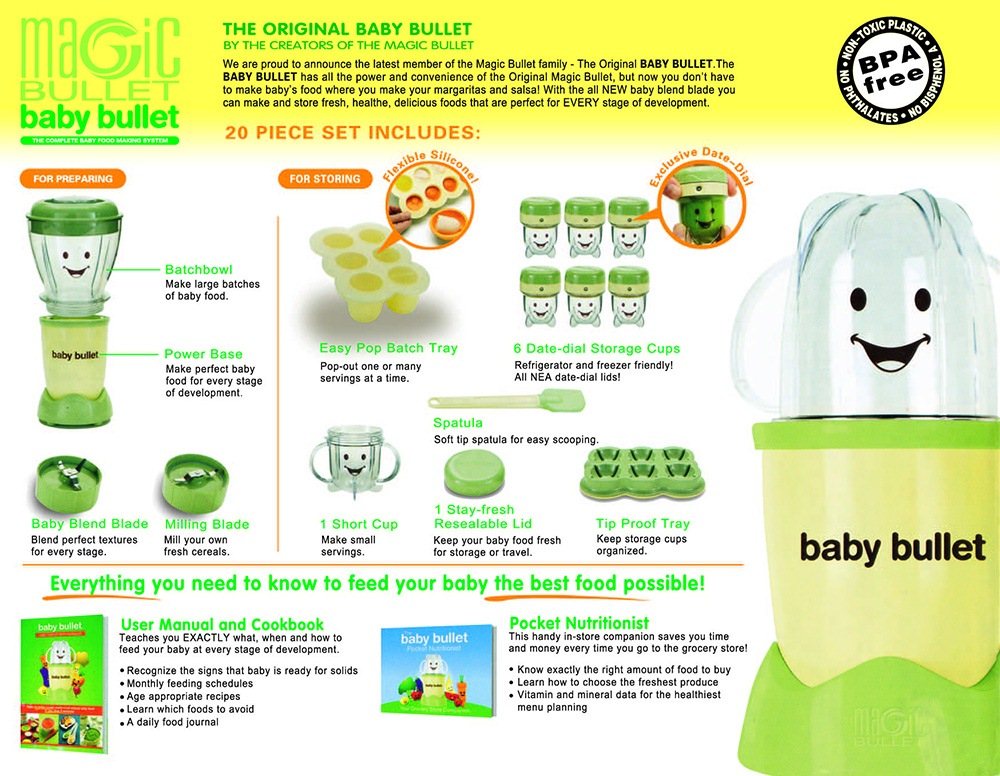 As long as they are receiving a balanced diet and a variety of nutrient-enriched foods, most vegetables, fruits, proteins, and grains. When it comes to more allergenic foods, it is best to introduce them after other baby-friendly foods. Always consult your pediatrician with concerns.
As long as they are receiving a balanced diet and a variety of nutrient-enriched foods, most vegetables, fruits, proteins, and grains. When it comes to more allergenic foods, it is best to introduce them after other baby-friendly foods. Always consult your pediatrician with concerns.
Growing babies soon start to show interest in trying new foods, and it's normal to want to introduce them to new tastes and textures. But not all foods are safe for your baby. Here is a list of foods you should avoid feeding your baby during the first year of growth.
More: Can You Eat Thanksgiving Turkey While Pregnant?
Pureed Foods vs Finger Foods
Babies are typically introduced to solid foods around six months of age. For newborns and babies less than six months old, solid foods may pose a choking hazard. So for young babies, many parents will turn to baby pureed foods. Pureed foods are softer than finger foods and easier on a baby’s digestive system. However, some parents turn to baby-led weaning which can also be a great option to introduce your little one to solid foods.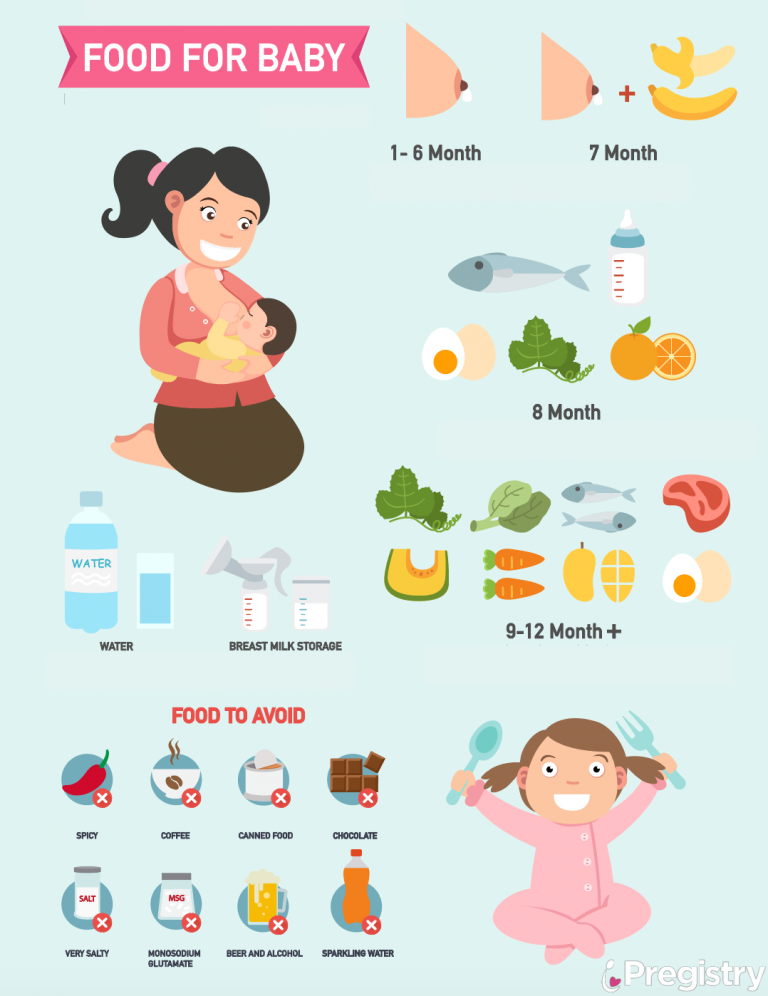
Honey
Infants under a year old should not be fed any form of honey (raw, baked, or cooked). Honey is bad for babies because it can harbor Clostridium botulinum, which can produce botulinum spores. These spores secrete toxins that can lead to muscle weakness, poor sucking, a weak cry, constipation, decreased muscle tone, and even paralysis in young infants. An infant's intestinal tract isn't strong enough to fight off these spores and toxins.
Infant botulism can be prevented by avoiding raw honey and avoiding contact with soil contaminated with the same C botulinum spores. This is rare and mostly found at agricultural sites in Utah, California, or Pennsylvania.
Cow's Milk
Stick to breast milk or formula until your child's first birthday. A child under the age of one can't digest the enzymes and proteins in cow's milk, and certain minerals in it can cause damage to your baby's kidneys. This is also true for certain dairy products such as cottage cheese.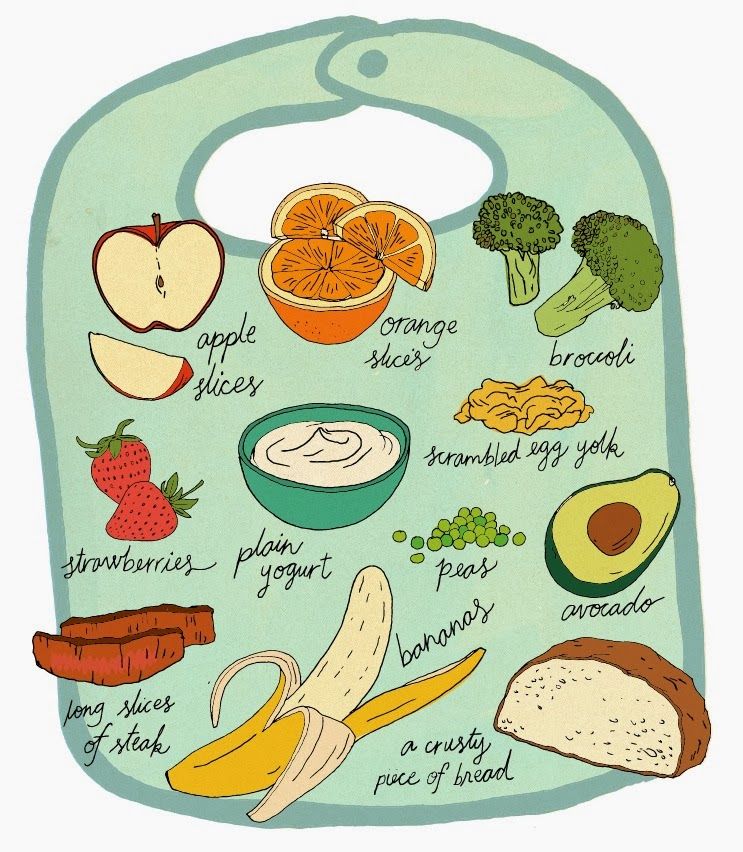 Also, unlike breast milk or formula, cow's milk doesn't provide all the proper nutrients for a growing infant. So if you are breastfeeding or if you are bottle feeding with breast milk or infant formula then keep doing so.
Also, unlike breast milk or formula, cow's milk doesn't provide all the proper nutrients for a growing infant. So if you are breastfeeding or if you are bottle feeding with breast milk or infant formula then keep doing so.
Egg Whites
Don't feed egg products to a child under the age of one, to avoid an allergic reaction or allergies in the future. While the proteins in egg yolks are seldom a source of allergens, the proteins in egg whites may cause allergic reactions. By the age of five, a child normally outgrows the potential for an allergic reaction to egg whites.
Citrus
Avoid feeding citrus fruits and juices to your baby for the first couple of months. These foods are high in Vitamin C and acid, which can cause an upset tummy and/or acid reflux in your baby. Remember, their digestive system is still developing.
Seafood/Shellfish
Another potential allergen for babies is seafood, and particularly shellfish. Talk to your pediatrician before feeding your baby boneless fish -- even tuna.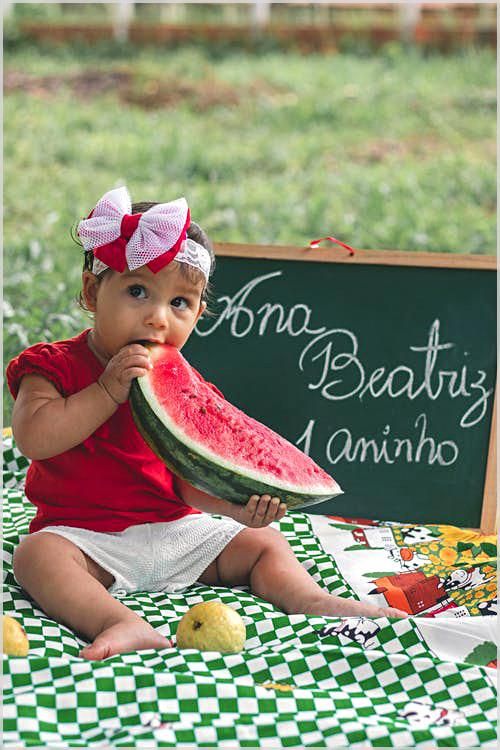 Do not give any sort of shellfish (such as shrimp, clams, swordfish, mackerel, or crabmeat) to your baby until it's been discussed.
Do not give any sort of shellfish (such as shrimp, clams, swordfish, mackerel, or crabmeat) to your baby until it's been discussed.
Wheat
Due to allergens in wheat, it is best to wait until your baby is one, two, or even three years old before introducing it into your baby's diet. If you have checked with your pediatrician and are sure that your baby hasn't had an allergic reaction to rice, oats, or barley, you may try introducing wheat at the age of eight or nine months.
Large Chunks of Food
It is widely recommended that you feed your child breast milk or formula for the first four to six months. Once you start baby on solids, pea-sized foods are safest, to prevent choking. Make sure that vegetables are diced and cooked up soft, and cut fruits into quarters to avoid them getting stuck in your child's throat. Meats and cheese should also be cut into very small pieces or shredded.
Soft, Sticky Foods
While most soft foods are good for young babies, some soft foods should be avoided.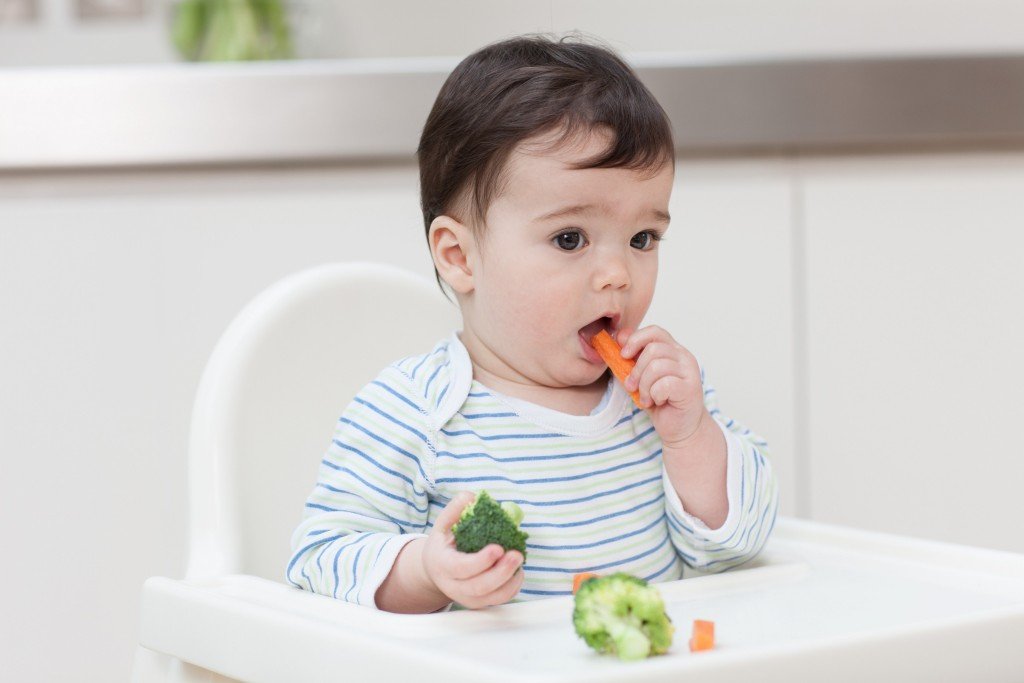 Sticky foods like jellies and marshmallows should not be fed to a baby before six months as these foods can get stuck in a baby’s throat and block the child’s airway.
Sticky foods like jellies and marshmallows should not be fed to a baby before six months as these foods can get stuck in a baby’s throat and block the child’s airway.
Small, Hard Foods
Foods like whole nuts, popcorn, whole grapes, raw vegetables, raisins, candies, dried fruits, seeds, or any other small, hard food should not be given to a baby. They are all choking hazards and can easily become lodged in your baby's throat. Any food you give your baby should be diced into small bits and cooked until soft.
Fruits
Below is some insight on certain fruits that many parents have questions about feeding their baby.
- Strawberries and raspberries: Many berries are packed with vitamin C and are good for babies and young children. The American Academy of Pediatrics that you hold off introducing these fruits until after they have tried other solids first.
- Pineapple: Pineapple is considered a safe food for your baby to eat. However, it is a firm fruit and should be sliced into thin strips since it can be a choking hazard when cubed.
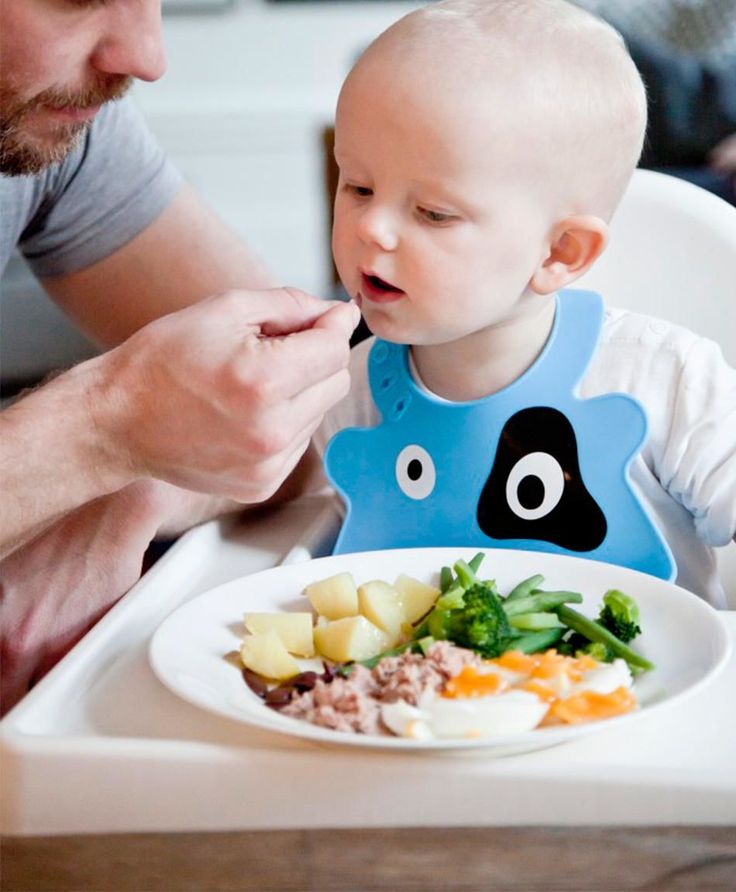
- Melon: Watermelon is a good example of a first fruit you can offer to your baby. It is soft, easy to chew, and full of vitamins. It is made up of mostly water so it is also great for hydration.
- Papaya: This is a superfood that is super healthy and great for your baby. The recommendation is to wait to introduce it to your little one until they are 7 or 8 months old.
Vegetables
Vegetables are healthy options for kids, but when is the right age for babies to start eating their veggies? Here is a list of veggies and produce that parents have questions about. You can find below whether or not they are safe to give to your baby.
- Spinach: Believe it or not, raw spinach is full of nitrates. This is not to be confused with synthetic nitrates but is still not good to give much to little ones. It is recommended that if you give them spinach, make sure it is cooked and pureed.
- Lettuce: This can be hard for your baby to chew, so it's best to wait until they are between 9 months and 1 year old.

- Peas: Green peas are a great starter food. They are easy to pick up, offer a new texture, are small enough to avoid choking and can be pureed.
- Onions: Many parents add cooked onions to homemade baby food. They are full of vitamin C and can be introduced between 6 and 8 months old.
- Garlic: If you cook frequently then you know that garlic can add a whole new flavor to certain foods. You can cook down and add a small amount to your baby's food between 6 and 8 months old.
- Sweet Potatoes: This is another great first solid. Soft, cooked sweet potato cut into chunks is perfect for a 6-month-old.
- Potatoes: These are considered starchy vegetables so even though they are safe to give to your baby, you will want to do it in moderation.
Meats
Introducing meat to your baby's diet can happen after starting solids, which is usually around 6 months. Poultry and lean beef are fine to give your little one in small amounts.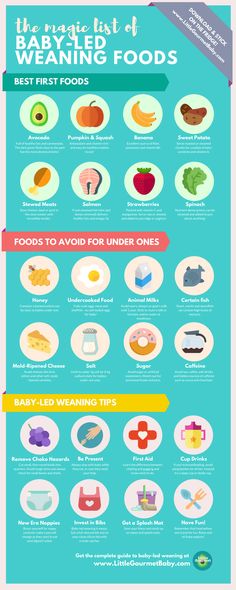 Below are two types of meat that should be avoided.
Below are two types of meat that should be avoided.
- Hotdogs: Hotdogs are a choking hazard. It is not recommended to give them to young children under 4 years of age. When they are old enough, they can be thinly sliced or minced.
- Bacon: It is best to wait until after your baby's first birthday to give them any bacon. It is full of synthetic nitrates and possible carcinogens. It is generally considered unhealthy and should be offered rarely.
Fruit Juice
Most juices are full of added sugar. Since babies are generally still drinking from bottles under 1 year old, it is not advisable to put fruit juice in them. It is known to cause tooth decay. Offer your baby a little water after 6 months if you are looking to give them something besides breast milk or infant formula.
What About Peanut Butter?
Experts previously believed that introducing peanut butter or any sort of nut product at an early age could lead to nut allergies. Times have changed and many pediatricians encourage the introduction of peanut butter to children between 6 and 8 months after they have tried a few solid foods with no issues. The AAP recommends talking with your pediatrician about introducing nut products to your baby, once he is eating solid foods. If your baby doesn't have any food allergies or risk factors, your doctor will probably advise feeding him a thin layer of creamy (not chunky) peanut butter on a cracker or bread, or foods that have peanut butter in them. Never give whole peanuts or nut pieces to a child under age 4 because of the choking risk.
Times have changed and many pediatricians encourage the introduction of peanut butter to children between 6 and 8 months after they have tried a few solid foods with no issues. The AAP recommends talking with your pediatrician about introducing nut products to your baby, once he is eating solid foods. If your baby doesn't have any food allergies or risk factors, your doctor will probably advise feeding him a thin layer of creamy (not chunky) peanut butter on a cracker or bread, or foods that have peanut butter in them. Never give whole peanuts or nut pieces to a child under age 4 because of the choking risk.
If your child is at high risk for a peanut allergy or other food allergies (because of family history or if he has an existing food allergy or eczema), your doctor might recommend doing allergy testing before introducing nut products or feeding your child nut products at the doctor's office in case of an allergic reaction.
what not to eat for children under 1 year old and why
Reasons for the ban
In the first year of life, many systems of the child's body are still developing, including the immune and digestive 1 .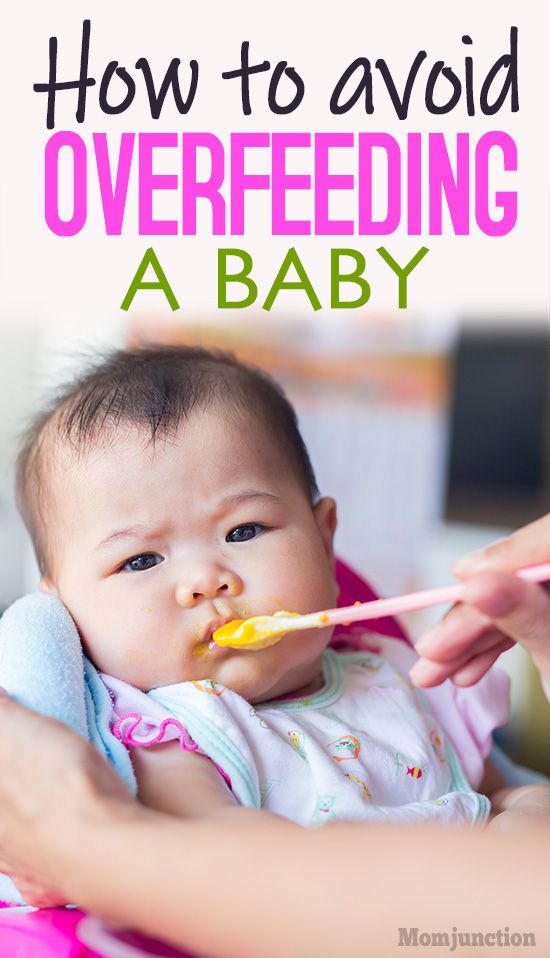 The ban on the use of certain products before the age of one is associated with the vulnerability of these two systems. The baby's diet should not include allergen foods and dishes that cause problems with the gastrointestinal tract, kidneys and liver.
The ban on the use of certain products before the age of one is associated with the vulnerability of these two systems. The baby's diet should not include allergen foods and dishes that cause problems with the gastrointestinal tract, kidneys and liver.
- provoke an allergic reaction,
- are poorly digested or not absorbed by the body at all,
- cause excessive stress on various organs and systems, for example, causing gas, bloating and other problems.
It will be useful for mothers to learn about foods forbidden to children under one year old.
Candies and other sweets
Sweets, cakes, pastries, muffins, waffles, rich pastries and other "sweets" of industrial production can harm the fragile body of the baby. They contain dyes, preservatives and other artificial additives, unhealthy confectionery fats or vegetable oils. “But a growing body needs sugar!” - any mother will reasonably object.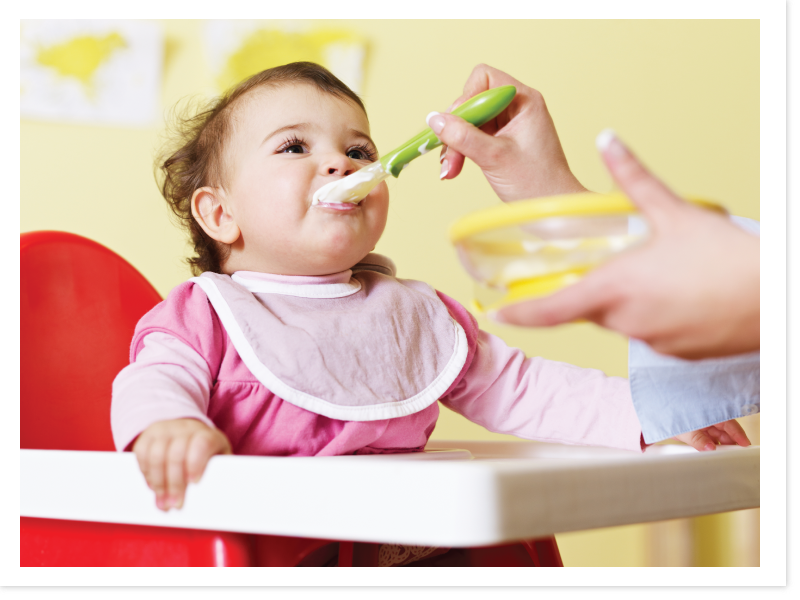 Yes, but top sweets for babies up to one year old - baby fruit purees and juices , not sweets or confectionery.
Yes, but top sweets for babies up to one year old - baby fruit purees and juices , not sweets or confectionery.
Puree contains a sufficient amount of natural fruit sugars , useful for a growing organism. It is better to choose fruit drinks and compotes for a baby up to a year of industrial production with the marking “for feeding children from so many months”, juices are also special for children from the store marked “no added sugar” 2, 3 . Chocolate for babies up to a year is also banned. Cocoa in its composition belongs to strong allergens , moreover, it can invigorate the baby to overexcitation.
Salt and pickles
Pediatricians recommend that mothers accustom their baby to the original taste of foods when complementary foods are introduced. This is a reliable foundation for proper nutrition and health for many years. Vegetables and cereals are tasty on their own, without flavor enhancers such as sugar and salt 4 . It is better not to add salt to complementary foods at all, but salting them the way they salt adult food is strictly prohibited . The "salt" norm of an adult is about 5 grams per day, a baby from six months to a year can receive no more than 0.3 grams of sodium chloride per day. This dose is contained in complementary foods and breast milk or milk mixtures that are given to the baby. There is no need to salt his food. For the body of a baby, an adult dose is an overabundance of almost 17 times, which loads the kidneys, liver and blood vessels and retains fluid in the body. For the same reason Pickles and other very salty foods such as pickles, straws, nuts or fish should not be given to infants. .
It is better not to add salt to complementary foods at all, but salting them the way they salt adult food is strictly prohibited . The "salt" norm of an adult is about 5 grams per day, a baby from six months to a year can receive no more than 0.3 grams of sodium chloride per day. This dose is contained in complementary foods and breast milk or milk mixtures that are given to the baby. There is no need to salt his food. For the body of a baby, an adult dose is an overabundance of almost 17 times, which loads the kidneys, liver and blood vessels and retains fluid in the body. For the same reason Pickles and other very salty foods such as pickles, straws, nuts or fish should not be given to infants. .
Seafood
Undoubtedly, seafood is very useful: rich in protein, trace elements and other important compounds. But squids, mussels, shrimps and other inhabitants of the deep sea are strong allergens for the child's organism .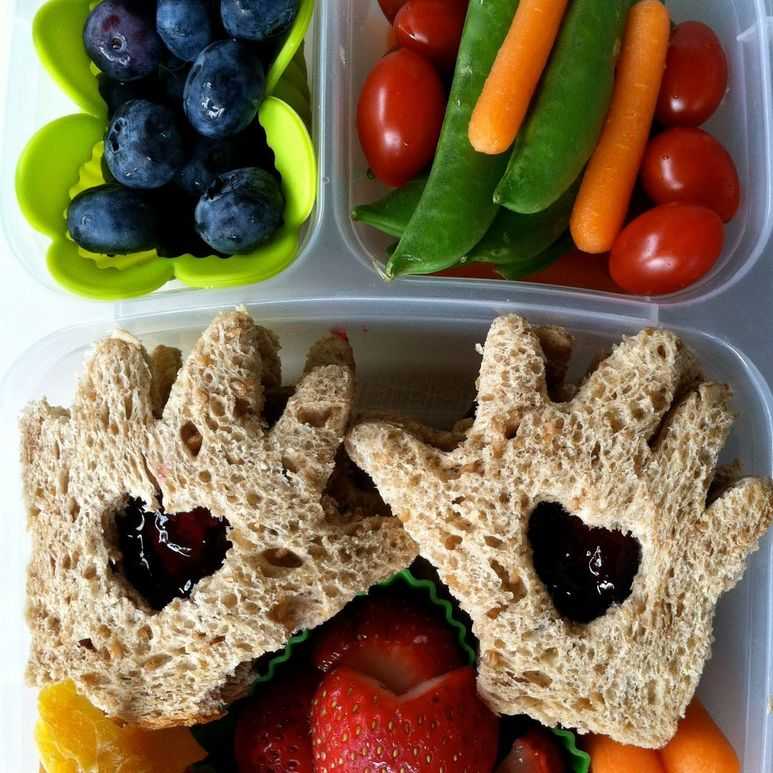 In addition, seafood protein is unusual for the gastrointestinal tract of the baby and will be poorly absorbed. Modern pediatricians warn that even fish puree in baby food appears last. His healthy baby starts to give at about 10-12 months 5 .
In addition, seafood protein is unusual for the gastrointestinal tract of the baby and will be poorly absorbed. Modern pediatricians warn that even fish puree in baby food appears last. His healthy baby starts to give at about 10-12 months 5 .
Allergenic vegetables, fruits and berries
Pediatricians classify as allergenic vegetables, fruits and berries red and orange . Strawberries, wild strawberries, sea buckthorn, raspberries, pomegranates, pineapples, melons, grapes, red apples, persimmons, peaches, tomatoes, red and orange bell peppers, all citrus fruits and even carrots are potential highly allergenic foods for a baby up to a year old 6 . Allergenic also include exotic fruits and vegetables - kiwi, avocado, passion fruit and others. For a healthy child, they are introduced into the diet after a year, after consulting a doctor.
Gas generating products
Bloated tummy and gas are a concern for any mother.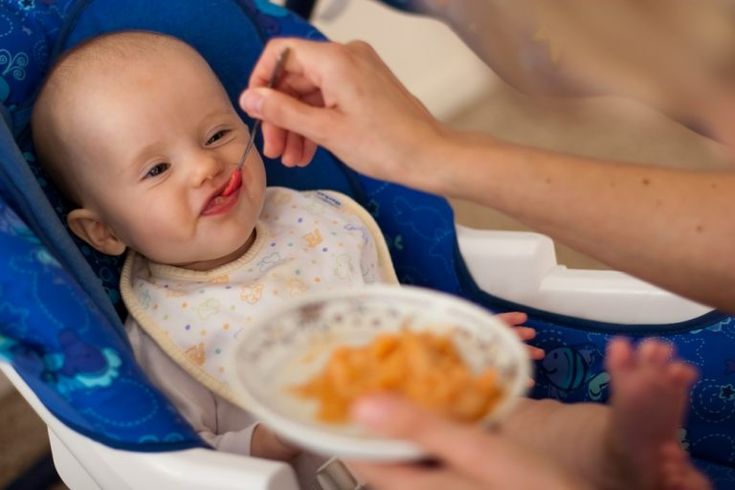 It is better to exclude foods that provoke them from the baby’s diet: legumes, cabbage, grapes, and even white or rye bread. Dryers, cookies or biscuits are suitable for a child up to a year - special children's ones.
It is better to exclude foods that provoke them from the baby’s diet: legumes, cabbage, grapes, and even white or rye bread. Dryers, cookies or biscuits are suitable for a child up to a year - special children's ones.
Mushrooms
Chemically, mushrooms are similar to both vegetables and animal products. They contain B vitamins, vitamin D, biotin and many other useful substances. Mushrooms are rich in protein - from 2 to 9%. In white mushrooms, protein, for example, is 3.7%, and in champignons - 4.3%. However, mushroom protein is poorly absorbed even by the body of an adult due to chitin, which is also present in mushrooms. Toddlers should not eat mushrooms to avoid digestive problems and allergies.
Whole milk
Breastfed baby eats mother's milk, which contains 0.91-1.3 g of protein per 100 ml 7 . Manufacturers adapt dry adapted milk formulas, that is, they make them close to the composition of women's breast milk. Adapted infant formula is a low protein product. For example, MAMAKO 9 infant formulas0007 ® Premium in goat milk are adapted for a protein component that is easy to digest and assimilate. But whole cow's milk, like whole goat's milk, are high-protein foods: cow's milk contains about 3.2 g of protein per 100 ml, in goat - up to 3.6 g per 100 ml.
In addition, regular milk contains nutrients whose amounts are not adapted to the needs of the child. Therefore, it is not worth giving whole milk to children under one year old 8 , and if you want to feed your child with milk porridge, it is better to choose ready-made industrial production. Such porridges, for example, MAMAKO porridges ® with prebiotics in goat milk, designed for comfortable digestion, enriched with vitamins and easy to digest.
Read also
- milk or formula - which is more useful for children after a year.
Products with gluten
The problem of food allergies in babies today is one of the most acute. Infants are often observed intolerance to wheat germ proteins - gluten . Gluten is found in many cereals, but most of all in wheat, which is used to make semolina, flour and pasta. In the first year of a baby's life, it is important to reduce the risk of developing food allergies, including gluten allergy 9 . Therefore, semolina, pasta, white bread and bakery products made from wheat flour are foods that are best excluded from the diet of children under one year old.
Infants are often observed intolerance to wheat germ proteins - gluten . Gluten is found in many cereals, but most of all in wheat, which is used to make semolina, flour and pasta. In the first year of a baby's life, it is important to reduce the risk of developing food allergies, including gluten allergy 9 . Therefore, semolina, pasta, white bread and bakery products made from wheat flour are foods that are best excluded from the diet of children under one year old.
Honey and nuts
Both products are very useful, but nuts, like honey, are highly allergenic food, unsuitable for children of the first year of life.
Carbonated drinks
Carbonated drinks should not be given to children under one year old due to:
- excess sugar: sodas are usually very sweet,
- carbonic acid, which creates "bubbles", that is, makes the drink carbonated. It irritates the mucous membrane of the walls of the stomach and causes severe discomfort in babies,
- flavors, colors and preservatives - these may cause an allergic reaction.

Fatty meat
Fatty meats include pork, lamb, goose and duck. It is extremely difficult for the baby's developing digestive system to digest dishes from these types of meat. It is better not to take risks in order to avoid a heavy load on the liver and a breakdown in the digestive tract. Sausages and sausages should also be excluded because of preservatives, flavor enhancers and other artificial additives.
The habit of healthy and high-quality food - without dyes and preservatives, with a reasonable minimum of sugar and salt - is the basis for the health and successful development of your crumbs. Healthy eating is a serious matter, but there are no special secrets. Parents, armed with knowledge, are always able to provide the baby with a varied and healthy diet for full development.
* Breast milk is the best food for babies. WHO recommends exclusive breastfeeding for the first 6 months of a child's life and continued breastfeeding after complementary foods are introduced until the age of 2 years.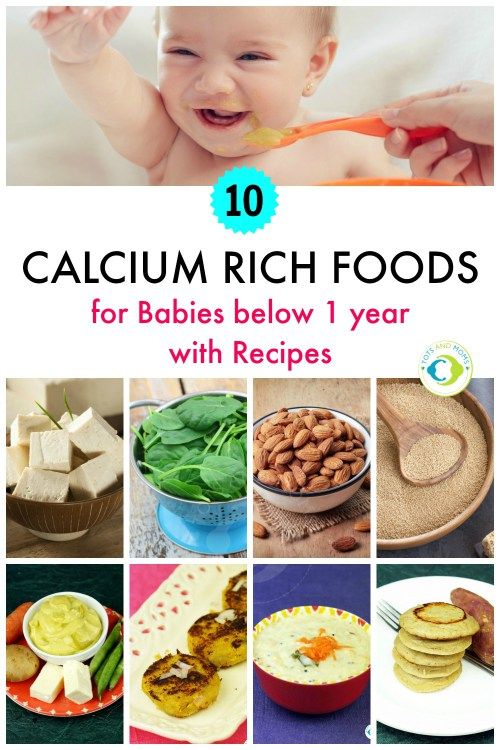 Before introducing new products into the baby's diet, you should consult with a specialist. The material is for informational purposes and cannot replace the advice of a healthcare professional. For feeding children from birth. The product is certified.
Before introducing new products into the baby's diet, you should consult with a specialist. The material is for informational purposes and cannot replace the advice of a healthcare professional. For feeding children from birth. The product is certified.
Prohibited foods for children
List of prohibited foods for children.
Nutrition for a child with illness
What foods should not be eaten by children with various illnesses?
Anxious mood of parents is often associated with the problem of poor appetite of their own child. Moms and dads are worried about what to feed the child so that he eats with appetite and, God forbid, does not lose weight. But most of the problems arise with feeding the baby, when he has health problems and there are severe dietary restrictions. What kind of food should not be eaten by children with this or that disease?
Prohibited Foods for Children
The small organism grows rapidly and requires proper and balanced nutrition for its development.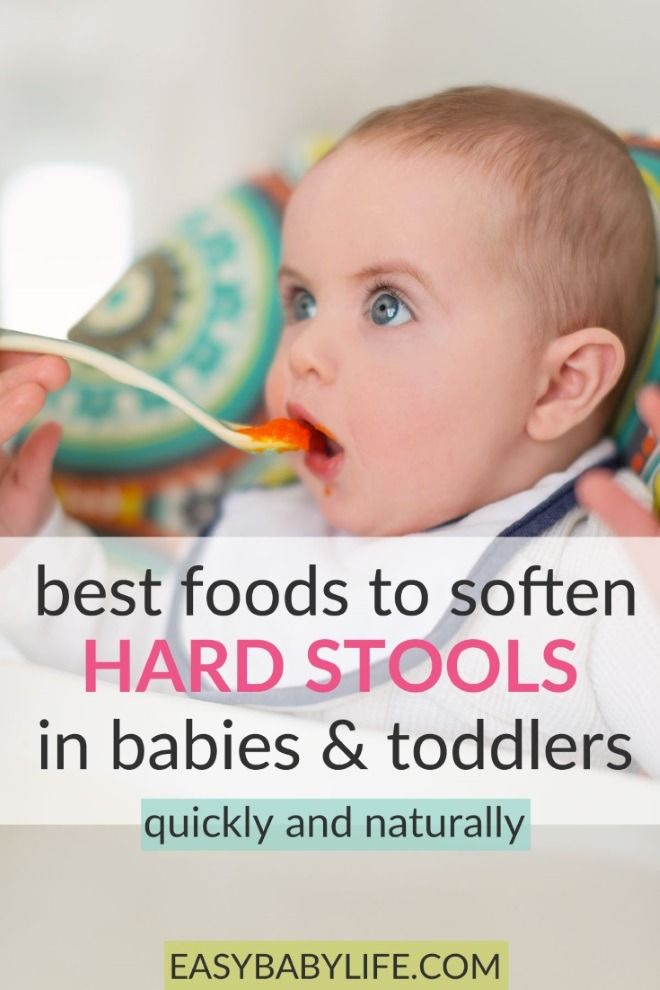 Carbohydrates, fats, proteins, vitamins, macro- and microelements are necessary substances for the normal physiological development of muscle and bone tissue, the brain, the proper formation of internal organs: the heart, kidneys, lungs, spleen, liver.
Carbohydrates, fats, proteins, vitamins, macro- and microelements are necessary substances for the normal physiological development of muscle and bone tissue, the brain, the proper formation of internal organs: the heart, kidneys, lungs, spleen, liver.
Proper nutrition of a child in the first years of life determines his subsequent health and the possibility of self-realization in adulthood. Therefore, it is important to lay the foundation for proper nutrition from an early age in order to avoid health problems in the future.
What should not be eaten by children under one year old?
Most pediatricians have come to the conclusion that breastfed babies should not receive whole cow's and goat's milk in any form. If a child is deprived of the opportunity to receive mother's milk, then such children are recommended adapted milk formulas for breast milk.
Cow's and goat's milk
Cow's milk is considered heavy food for the baby.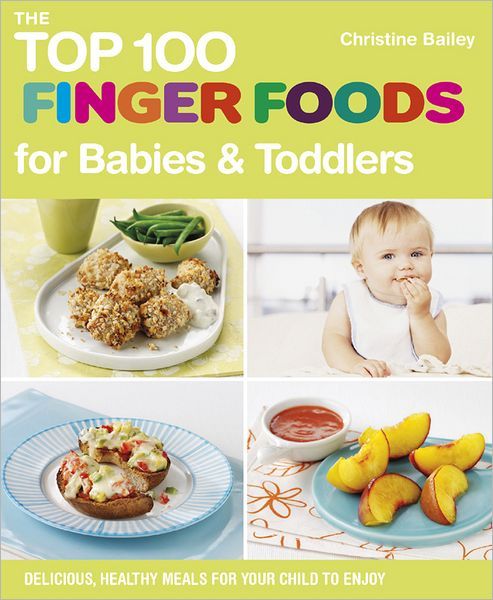 It contains a large amount of proteins, fats, mineral salts. The kidneys of the child begin to work with great effort, which leads to their overload. The liquid is excreted in a larger amount than necessary according to the physiological norm, which leads to the thirst of the baby. He receives a new portion of milk, so a "closed ring" is created.
It contains a large amount of proteins, fats, mineral salts. The kidneys of the child begin to work with great effort, which leads to their overload. The liquid is excreted in a larger amount than necessary according to the physiological norm, which leads to the thirst of the baby. He receives a new portion of milk, so a "closed ring" is created.
Cow's milk does not contain enough iron for a growing baby. Goat's milk contains less vitamin A than cow's milk, although in other respects it is closest to mother's milk.
The use of cow's milk in the early period of life can lead to the development of diabetes mellitus, iron deficiency anemia, and allergic diseases.
In addition, babies under two years of age have not yet formed enzymes that can break down the nutritional components of cow's milk. As a rule, cow's milk is not completely absorbed by the child's body.
IMPORTANT: It is not recommended to give yogurt to children under one year old, as it has a high acidity and contains alcohol.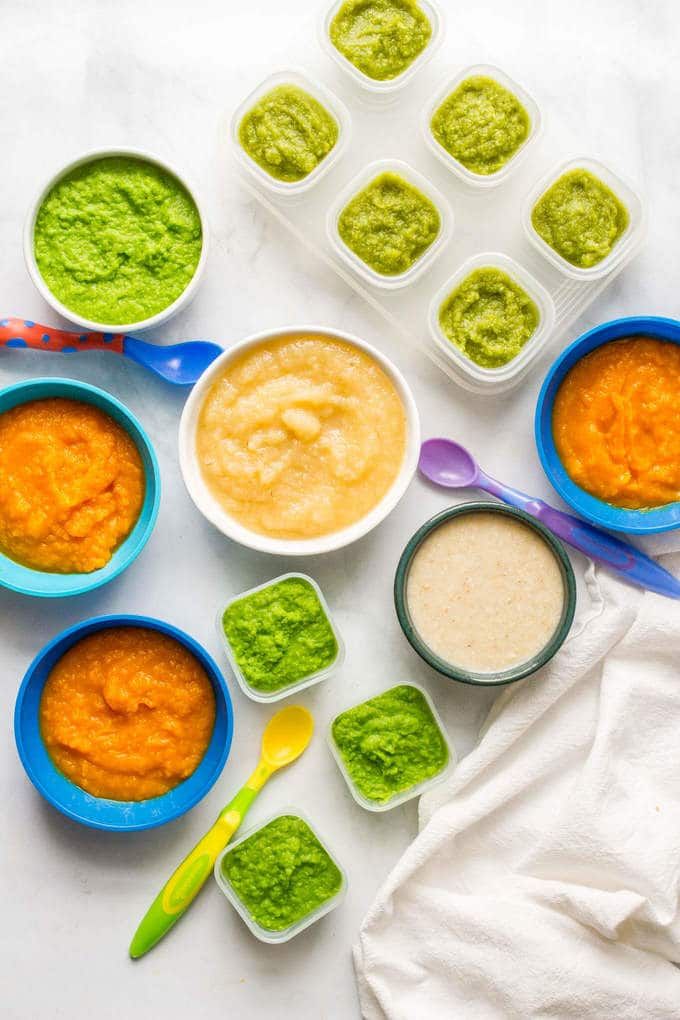
What should children under 3 not eat?
Sugar and salt
Salt and sugar should not be given to children, at least as long as they can be dispensed with. And it is best not to give these products until the age of three. Since the addition of salt and sugar is considered traditional in cooking, the baby will sooner or later get acquainted with the taste of salted and sweet food in kindergarten or school.
IMPORTANT: As shown by Roskontrol: many children's fermented milk products contain a high percentage of sugar. Therefore, babies should be given unsweetened and not very acidic natural fermented milk products with a short shelf life.
Semolina
Gone are the days when semolina was considered an indispensable product for baby food. It turns out that semolina contains gliadin, one of the components of gluten that makes it difficult for children's intestines to work. Fitin - another ingredient in semolina, inhibits the absorption of vitamin D and calcium.
Semolina gluten can cause allergic manifestations in a child in the form of red itchy spots. Excessive feeding of semolina often leads to overweight children, which is difficult to get rid of later.
Juice or puree?
Many pediatricians disagree: is it possible to give children juices of industrial production and home-made? Some allow giving juice to babies, other doctors do not recommend drinking juice for babies up to a year and a half, but insist on the use of fruit and vegetable purees. Their motivation is based on the fact that such food is rich in plant fiber and has a beneficial effect on the baby's intestines.
What should children 4-5 years old not eat?
Babies at the age of 4-5 years old parents often switch to adult food.
IMPORTANT: Dairy and sour-milk products made according to general production standards, and not according to special baby food technology, are of particular danger to children.
Honey
Honey is a useful natural product containing many biologically active components, macro- and microelements, and vitamins.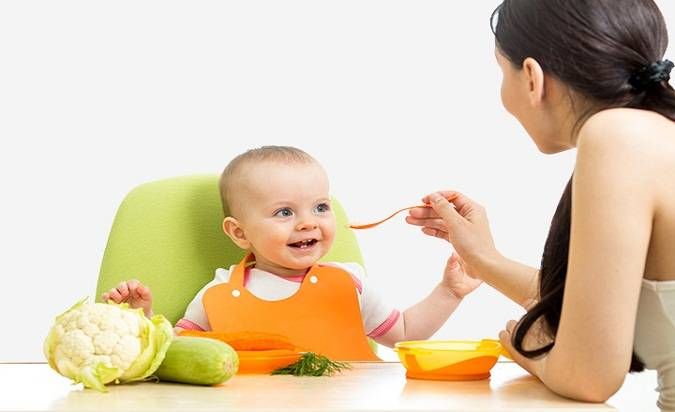 But this bee product can cause allergic manifestations. In early childhood, it is better to give up honey and carefully introduce it into baby food later.
But this bee product can cause allergic manifestations. In early childhood, it is better to give up honey and carefully introduce it into baby food later.
Sausages and sausages
Sausages and frankfurters are allowed to be given to children after the age of three, prepared according to a special technology for baby food. Labels on such products are usually provided with inscriptions from what age this product can be consumed. There will be no great harm to the health of the child if he eats baby sausages no more than once every two weeks.
IMPORTANT: Roskontrol does not recommend giving young children sausage products intended for adult nutrition. These products contain many ingredients that are harmful to the child's body: preservatives, flavor enhancers, phosphates, nitrites and other harmful substances.
Chocolate
Sweet treats should not be given to babies for a number of reasons:
chocolate contains sugar
cocoa powder can cause allergies
cocoa butter is difficult to digest in the gastrointestinal tract 9 children
9005 red caviar 90 red caviar is a healthy food product containing a lot of complete protein and other useful components. But this is not food for younger children. Sea food ingredients are very allergenic, besides, seafood products and red caviar are processed with many preservatives and have a strong salty taste, which is unacceptable in baby food.
But this is not food for younger children. Sea food ingredients are very allergenic, besides, seafood products and red caviar are processed with many preservatives and have a strong salty taste, which is unacceptable in baby food. Strawberries, citrus fruits and other exotic fruits
Beautiful and tasty exotic fruits and fruits: kiwi, avocado, citrus fruits, pineapple, can cause severe allergic skin manifestations not only in babies, but also in older children. Strawberries, wild strawberries, raspberries also contain allergens, it is better not to give them to children, especially those who are prone to allergic reactions.
What absolutely can not be eaten by children?
There are forbidden foods for babies in their first years of life:
whole milk
honey
mushrooms
Nuts
Black and green tea
Coffee
Chocolate
Fastfood
In industrial production of children's food, there is a list of products unacceptable for children:
Vinegar
Ethyl alcohol with a concentration of more than 0.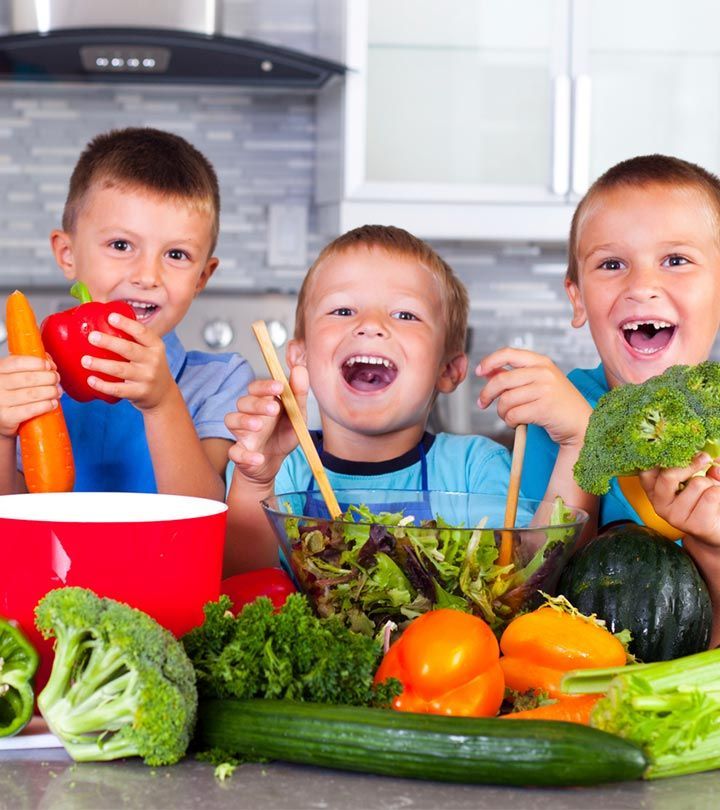 2%
2%
apricot kernels
sweeteners (except those special for dietary and baby food)
artificial flavors
benzoic and sorbic acids (they are used as preservatives)
hot and hot spices: pepper, mustard, horseradish
red meat, fish and poultry after refreezing
trans fats and hydrogenated oils
juice concentrates
food additives (various E additives not allowed in Russia for the production of baby food)
Prohibited products for children with various diseases
Childhood illnesses are a test not only for the child's body, but also for parents. Only by the joint efforts of a doctor and loving moms and dads can the child’s recovery be accelerated, and these are: drug treatment, proper regimen and hygiene, good nutrition, excluding certain foods from the diet for various diseases.
What should not be eaten in children with lactose?
Lactase deficiency is associated with the absence or insufficient amount of an enzyme that can break down milk sugar - lactose, which enters the body with dairy products.
In this disease, children experience disorders of the gastrointestinal tract: diarrhea or constipation, weight loss, foul-smelling frothy stools, regurgitation, vomiting, colic, bloating.
If lactose intolerance is suspected, babies are placed on a lactose-free or low-lactose diet. After the diagnosis and treatment of the disease that caused lactase deficiency, the child undergoes control tests. With positive dynamics, the doctor may give permission for the gradual introduction of fermented milk products into the diet.
IMPORTANT: Lactose is not only found in milk and dairy products, it is used in the manufacture of medicines, margarine, candy, bread, ham and sausages. Before buying certain products, you should carefully read their composition on the label
What should children not eat with angina?
Angina is a disease caused by viruses and bacteria. It is characterized by severe sore throat and high fever. During illness, the child's appetite is usually absent and this worries parents very much.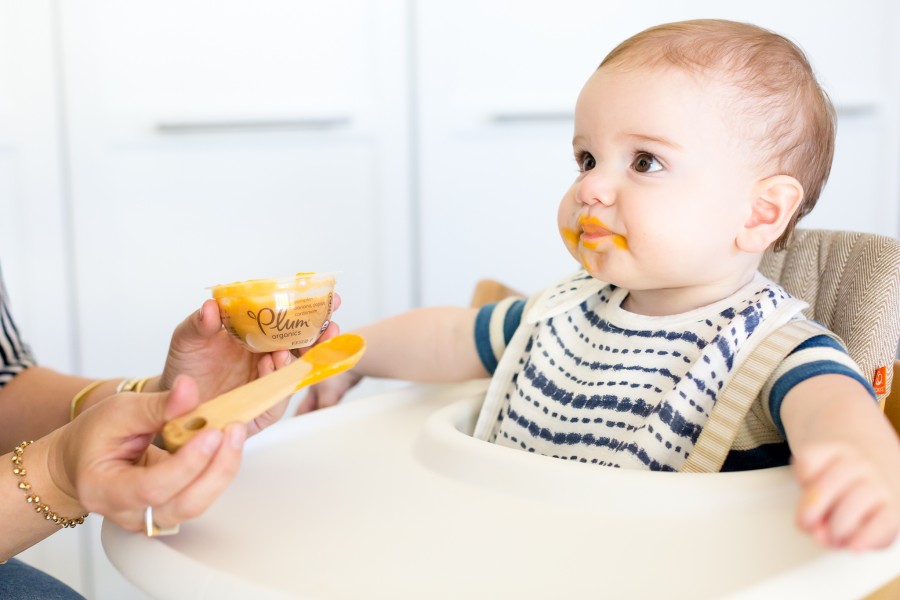
During an acute illness, do not force-feed your baby. Lack of appetite is a protective reaction of the body to the disease. After a few days, the child will begin to recover and the desire to eat will appear again.
Children with angina should not be given solid food. Food should be well ground, preferably to a puree state. Sour drinks, hot and cold dishes are contraindicated for an inflamed throat. Food should be warm and good tasting.
What should children not eat if they have allergies?
Allergic manifestations in children are caused by many reasons: food intolerance, drug intolerance, allergy to dust, animal dander, plant pollen, etc. During allergic manifestations, it is very important to adhere to the right diet and completely eliminate the products that provoke the appearance of allergies.
Foods that cause allergies
Cow's milk
Chicken eggs
Bakery and pasta products containing gluten
honey
chocolate
citrus fruits
red berries: strawberries, wild strawberries, raspberries
chicken meat
seafood and certain types of fish
Chickenpox is an infectious viral disease that affects almost all children attending preschool or school institutions.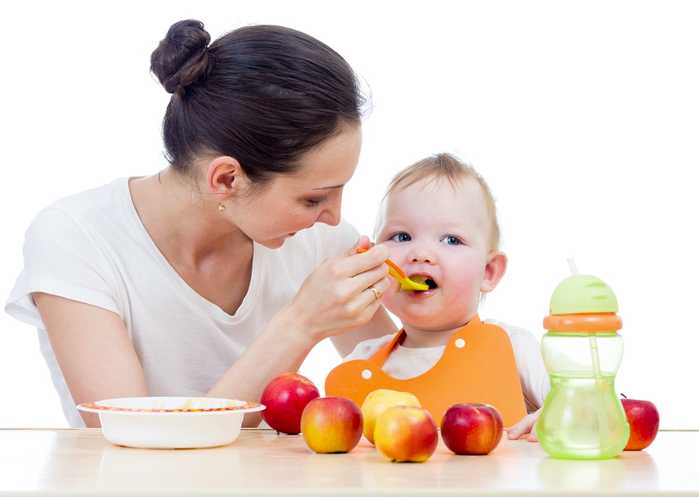 The acute period of the disease is associated with a rise in temperature, headache, itchy skin rashes in the form of fluid-filled vesicles.
The acute period of the disease is associated with a rise in temperature, headache, itchy skin rashes in the form of fluid-filled vesicles.
To help your child cope with the disease and move to the recovery stage faster, you need to follow the right diet, consisting of healthy and complete foods. During illness, food should be excluded, which is difficult for the child's body to digest and can cause a number of complications from the gastrointestinal tract.
It is not recommended to feed a sick child with fatty, spicy, salty, sour and fried foods. Food should be balanced, light, soft, warm. Too hot and cold food is contraindicated for the child.
Foods to avoid during chicken pox:
milk
garlic
ginger
citrus fruits
red meat
Dysbacteriosis is a disease associated with disturbances in the normal intestinal microflora of the body. An imbalance between “beneficial bacteria” and pathogenic bacteria causes improper bowel function.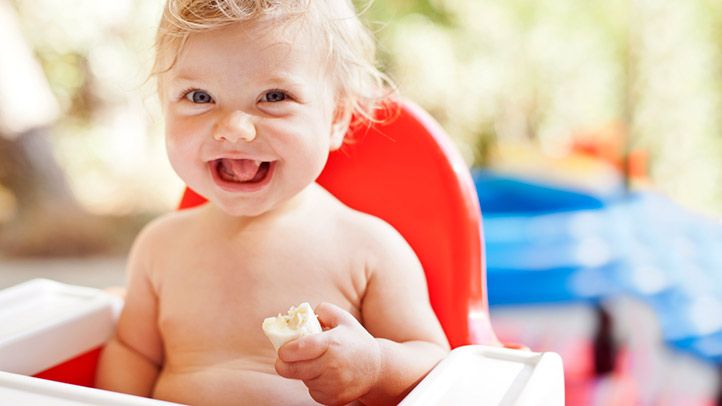
The child is concerned about:
intestinal motility disorder (constipation or diarrhea)
abdominal pain
vomiting
Bloating
Apathy and lethargy
Lack of appetite
causes of dysbiosis in children are different:
consequences of antibiotic therapy
Militudinal power 9000
Vitamin deficiency 9000 9000
9000
with dysbacteriosis and the exclusion of unacceptable products contribute to the rapid recovery of the baby.
Foods to avoid in dysbacteriosis:
sour berries and fruits (cherries, sour apples, cranberries, pomegranates, tangerines)
raw vegetables and fruits
products that cause fermentation in the intestines (grapes, cabbage, legumes, carbonated drinks)
sweets
canned food
smoked meats
fast food dishes
What should not be eaten when a child has colic?
Colic often accompanies the little man in the first months of life.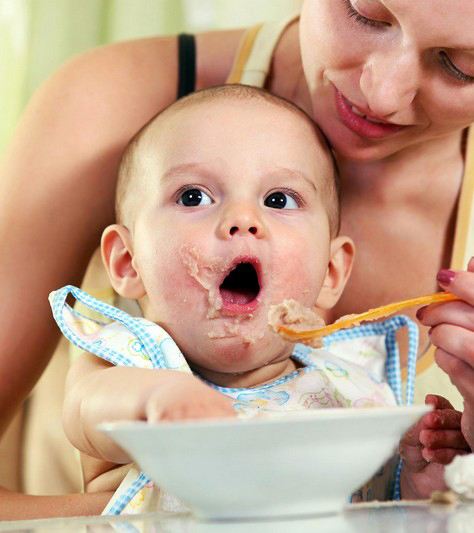 The baby is born with a sterile intestine and an immature gastrointestinal tract. In the body of a child, there are still not enough enzymes that can fully break down food. That is why a nursing mother should pay great attention to her nutrition.
The baby is born with a sterile intestine and an immature gastrointestinal tract. In the body of a child, there are still not enough enzymes that can fully break down food. That is why a nursing mother should pay great attention to her nutrition.
Products that should not be included in the diet of a nursing mother
whole milk
Cabbage
Shipped water
store vegetables and fruit juices
Sweets and sdoba
Chocolate
9000Bobic
To prevent colic baby, the diet of a nursing mother should consist of steamed, boiled or baked foods. Preference should be given to vegetables and fruits with a green color. With further maturation of the child and the disappearance of colic, the choice of food products can be expanded, based on the recommendations of the doctor.
What should not be eaten if a child has diarrhea?
Diarrhea in a child can be caused by various reasons. These include poisoning, viral and infectious diseases, teething, gastrointestinal diseases, etc. But whatever the appearance of a digestive tract disorder is associated with, the key to a successful recovery of the body is properly prescribed nutrition for the disease
But whatever the appearance of a digestive tract disorder is associated with, the key to a successful recovery of the body is properly prescribed nutrition for the disease
breastfeeding should not stop breastfeeding. Pediatricians recommend increasing the number of feedings, but reducing the dose of milk to avoid overfeeding and reduce the load on the baby's gastrointestinal tract
Formula-fed babies should be fed in the same way. That is, reduce the dose of formula for one feeding, but increase the frequency of feedings. In this case, it is recommended to use adapted fermented milk and low-lactate mixtures
For older children who have switched to "adult food", a special diet should also be developed by a doctor. At the same time, food must be prepared according to certain rules
Food products that are difficult to digest and cause fermentation processes in the intestines should be discarded. Food is recommended to boil, bake, steam. Food products should be crushed with a blender or rubbed through a sieve.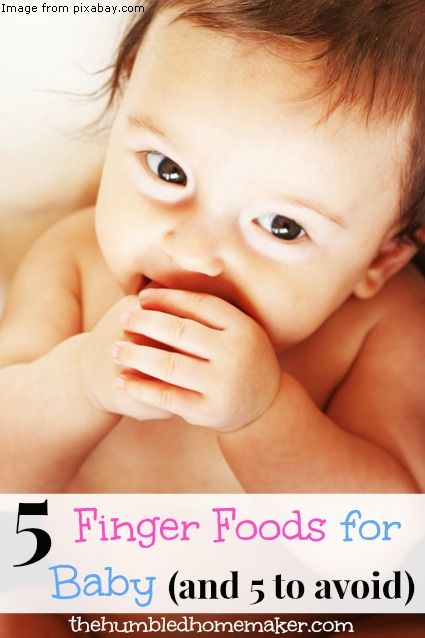 You can not eat fatty foods. Kashi (rice, oatmeal, buckwheat) should be boiled in water without adding milk.
You can not eat fatty foods. Kashi (rice, oatmeal, buckwheat) should be boiled in water without adding milk.
Products prohibited during diarrhea in children
Fresh vegetables, fruits and berries
Fatty meat
Fresh bread
Assed drinks
concentrated meat brills
What can not be found under Rototovirus?
Rotavirus infection is called "intestinal flu". The disease is transmitted by viruses through food, especially dairy products. Babies from 6 months to 2 years of age are most often infected with a viral infection.
Intoxication of the child's body leads to fever, intestinal colic, liquid diarrhea, dehydration.
IMPORTANT: Young children become dehydrated very quickly. With intestinal flu, a loss of 10% of fluid can seriously affect the health of the baby, and in some cases even lead to death.
If the child is sick with rotavirus infection and refuses to eat, do not insist and force-feed the baby.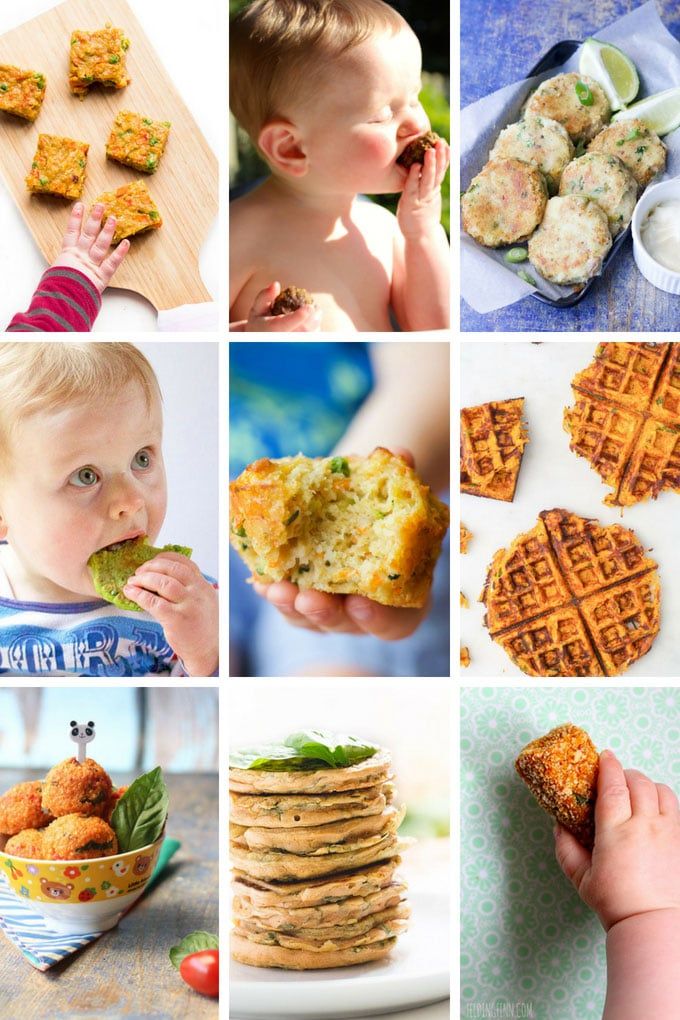 But you need to drink the child often in small portions of water every half hour. This is an important and strict requirement that must be met in order to avoid fluid loss.
But you need to drink the child often in small portions of water every half hour. This is an important and strict requirement that must be met in order to avoid fluid loss.
For intestinal flu in children, follow the recommendations:
In the acute period of infection, accompanied by high fever and vomiting, it is better not to feed the child, but to give him saline rehydration solutions and drinking water
Infants should be given breast milk little by little, and in between between feedings - water
Infants who are bottle-fed should switch to lactose-free formulas during the period of illness, in consultation with a pediatrician.
Eliminate from the diet foods that irritate the intestines: fried, salty, canned foods, foods containing coarse fiber
Feed the child often in small portions cook boiled dairy-free cereals, weak meat and vegetable broths, give mashed fruits and vegetables, fermented milk products
IMPORTANT: Until the stool normalizes, the following should be excluded from the child's diet: whole milk, juices, fresh fruits and vegetables
What can not be eaten with stomatitis in children?
Stomatitis is a disease associated with inflammation of the oral mucosa.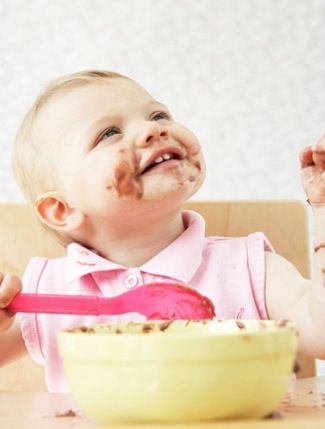 The disease causes the child suffering in the form of pain, high fever, inability to eat due to sores in the oral cavity. It is extremely difficult to feed a child with such a disease. This circumstance worries parents a lot.
The disease causes the child suffering in the form of pain, high fever, inability to eat due to sores in the oral cavity. It is extremely difficult to feed a child with such a disease. This circumstance worries parents a lot.
Recommendations for feeding a child with stomatitis
It is not allowed to feed a child with spicy, sour and salty foods that can irritate the oral mucosa
The temperature of the food should be warm and comfortable to eat. Hot and cold foods are not suitable for feeding a child
Cocoa, chocolate are excluded from the menu, sweet foods are limited as much as possible
Solid texture of food is not suitable for eating. Food should be in the form of purees, soups, liquid cereals
It is not recommended to use dry bread and coarse-ground bakery products
Tomatoes, sour berries and fruits, citrus fruits are excluded from the diet.
Garlic, onion, radish, spices that irritate the oral mucosa are not allowed in the diet. Lack of appetite and unwillingness to eat in the early days of illness is normal. You can not force the child to eat at this time.
Lack of appetite and unwillingness to eat in the early days of illness is normal. You can not force the child to eat at this time.
At high temperatures, it is preferable for children to drink plenty of water in the form of sweetened teas, fruit drinks, compotes with dried fruits, jelly. Such drinks are rich in vitamins, which a sick child really needs.
IMPORTANT: At a high temperature, all dairy products should be excluded from the child's diet: whole milk, cottage cheese, kefir, yogurt, cheese. It is not recommended to use cereals cooked in milk.
Milk protein (casein) is practically indigestible at high temperatures. Products containing milk in the baby's stomach churn into a rubbery mass. When the temperature drops, there is a high risk of acetonemic syndrome, which manifests itself in the form of vomiting.
What not to eat after mantoux for a child
The Mantoux test is performed to diagnose tuberculosis in children. The examination is carried out by intradermal injection of tuberculin, which is a collection of filtrates of mycobacteria that died during heating.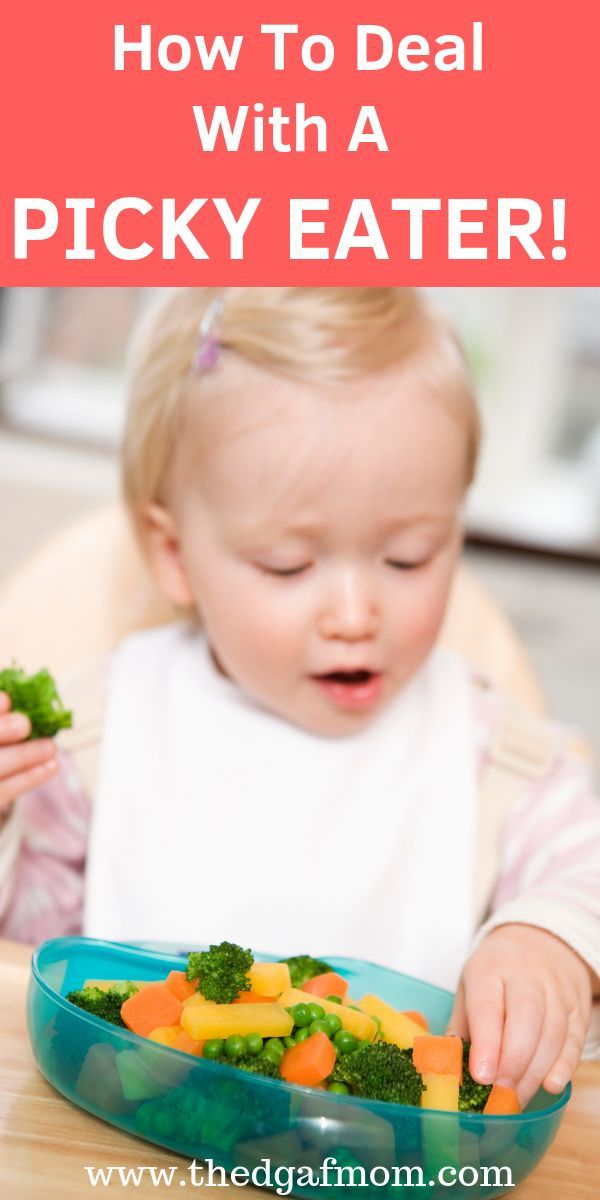
Tuberculin is a strong allergen that can cause an allergic reaction in allergic children.
IMPORTANT: In order not to distort the true reaction of the child to the Mantoux test, foods that can cause an allergic reaction should be excluded from his diet.
Allergen products that are not allowed before and after the Mantoux test:
cow's milk
fish
seafood (shrimps, lobsters, crayfish, oysters)
red caviar
eggs and broth
chocolate
nuts
citrus and exotic fruits (pineapples, persimmons, mangoes)
fruits and berries with a predominance of red and bright orange pigment (strawberries, raspberries, red apples, apricots)
canned food
sweets
industrial food products with food additives (chips, crackers)
fast food
What should not be eaten by a child with constipation?
Due to the imperfection of the child's gastrointestinal tract, malnutrition, insufficient water intake and many other factors, children may develop constipation from time to time.